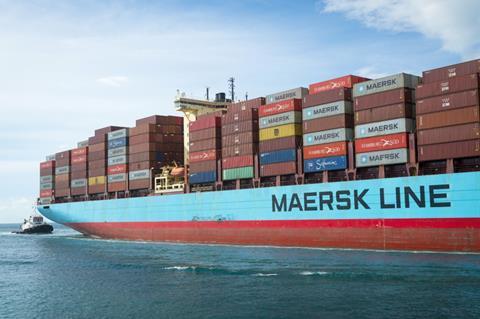Ongoing global developments are expected to contribute to a stronger financial performance in the second half of 2024
Maersk has increased its guidance for the full-year of 2024 after considering the impact of a multitude of ongoing global developments.

The logistics group said that it had changed its guidance on the back of continued strong container market demand and the disruption caused by the ongoing crisis in the Red Sea.
This was in addition to the prospect of further port congestions, especially in Asia and the Middle East, and an additional increase in container freight rates.
”This development is gradually building up and is expected to contribute to a stronger financial performance in the second half of 2024,” it noted.
Based on this, Maersk upgraded its 2024 full-year guidance to an underlying EBITDA of US$7bn-9bn and an EBIT of US$1bn-3bn, up from US$4bn-6bn and -US$2bn-0bn respectively.
”In the past month, the container transport market has entered a new phase driven by the disruptions from the ongoing crisis in the Red Sea and the ripple effects on global supply chains,” said Vincent Clerc, CEO of Maersk.
”While demand for container transport remains strong, supply has been negatively impacted by missed sailings, longer routes, equipment shortages, and delays leading to increased congestion across several key ports in Asia and the Middle East.
“This demand and supply imbalance has had an immediate and profound impact on freight rates,” he continued.
”After a stable first quarter, price increases gained momentum during April and May across many regions. The ongoing threats to commercial vessels in the Red Sea and growing supply chain bottlenecks indicate that this situation won’t improve soon.
”More capacity than expected will be needed to resolve these issues and stabilise the global supply chain,” Clerc added. “This has led us to reassess the outlook for the remainder of the year and upgrade our financial guidance.”
Maersk said that trading conditions remained subject to higher-than-normal volatility given the unpredictability of the Red Sea situation and the lack of clarity of future supply and demand.






